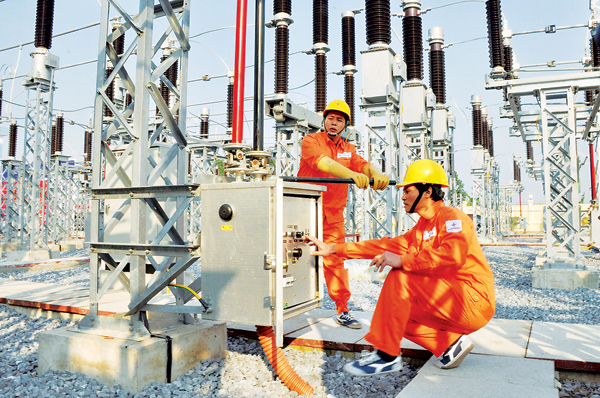Politburo orders expanding customers’ options in selecting electricity retailers
VGP - The Politburo has asked for effective implementation of the direct power purchase agreement (DPPA) mechanism and expansion of customers’ options in selecting electricity retailers, according to the recently-signed Resolution 70-NQ/TW.

The Resolution was signed by General Secretary To Lam on behalf of the Politburo to ensure national energy security through 2030 with a vision toward 2045, which calls for developing the energy market towards an competitive, transparent and effective manner while ensuring energy security.
At present, the Viet Nam Electricity Group (EVN) no longer holds monopoly over power generation, but it remains the sole buyer in the wholesale market and maintains monopoly in transmission and electricity retail. Electricity is currently distributed to households and businesses via EVN's power companies.
Under Viet Nam's Electricity Law 2024, once the competitive electricity market is fully developed, consumers will be able to choose their electricity retailer instead of the EVN.
Private enterprises are encouraged to participate in energy storage infrastructure investment projects such as battery storage systems, LNG terminals, and petroleum depots both onshore and offshore. In addition, the electricity transmission pricing mechanism must be reformed to attract private sector involvement.
Viet Nam has issued regulations on the DPPA mechanism between renewable energy producers (such as solar and wind) and big electricity consumers. Data from power companies showed that only about 7,700 customers are eligible for direct purchases, accounting for roughly 40 percent of the country's total electricity consumption.
According to the Resolution, the Politburo has set the target that by 2030, Viet Nam's total primary energy supply will reach around 150–170 million tons of oil equivalent (TOE).
The total power generation capacity will be estimated at about 183–236 GW while the total electricity output will reach approximately 560–624 billion kWh. Renewable energy is expected to account for about 25–30 percent of the total primary energy supply. Final energy consumption is projected at around 120–130 million TOE.
Under the Resolution, the Politburo has urged the swift implementation of the Ninh Thuan 1 and Ninh Thuan 2 nuclear power plants, with operations targeted for 2030–2035.
Relevant agencies were tasked to develop a comprehensive plan to strengthen the energy sector workforce, aiming to train 25,000-35,000 engineers and experts, with a particular focus on nuclear energy./.

